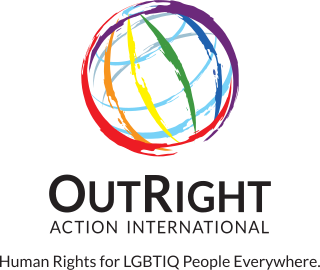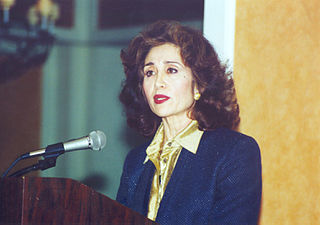
The United Nations Foundation is a charitable organization headquartered in Washington, D.C., that supports the United Nations and its activities. It was established in 1998 with a $1 billion gift to the United Nations by philanthropist Ted Turner, who believed the UN was crucial for addressing the world's problems. Originally primarily a grantmaker, the UN Foundation has evolved into a strategic partner to the UN, mobilizing support to advance the Sustainable Development Goals (SDGs), and help the UN address issues such as climate change, global health, gender equality, human rights, data and technology, peace, and humanitarian responses. The UN Foundation's main work occurs through building public-private partnerships, communities, initiatives, campaigns, and alliances to broaden support for the UN and solve global problems. The UN Foundation has helped build awareness and advocate for action on, among others, antimicrobial resistance, regional action on climate change, local implementation of the SDGs, as well as global campaigns such as Nothing But Nets against malaria, the Measles & Rubella Initiative, the Clean Cooking Alliance, Girl Up, Shot@Life, and the Digital Impact Alliance, among others. In March 2020, the UN Foundation was also a key founder of the COVID-19 Solidarity Response Fund on behalf of the World Health Organization (WHO), helping to raise over $200 million USD within the first six weeks to support the global response to the COVID-19 pandemic.

A non-governmental organization (NGO) is an organization that generally is formed independent from government. They are typically nonprofit entities, and many of them are active in humanitarianism or the social sciences; they can also include clubs and associations that provide services to their members and others. NGOs can also be lobby groups for corporations, such as the World Economic Forum. NGOs are distinguished from international and intergovernmental organizations (IOs) in that the latter are more directly involved with sovereign states and their governments.
The Green Belt Movement (GBM) is an indigenous grassroots organization in Kenya that empowers women through the planting of trees. It is one of the most effective and well-known grassroots organisations addressing the problem of global deforestation. Professor Wangari Maathai established the organization in 1977 under the auspices of the National Council of Women of Kenya (NCWK). GBM's successes in forest conservation, education, and women's economic empowerment have gained the organisation worldwide acclaim. It is also noted for its advocacy of human rights, democratisation of access to public lands, and environmental justice issues such as the role of women's traditional ecological knowledge in addressing environmental degradation and desertification.
Lutheran World Relief (LWR) is an international non-governmental organization that focuses on sustainable development projects and disaster relief and recovery. The organization was founded in 1945 to collect and send aid to people living in post-World War II Europe. Today, LWR helps communities living in extreme poverty adapt to the challenges that threaten their livelihoods and well-being, and responds to emergencies with a long-term view. It is a member of the Corus International family of faith-based international development organizations, which include IMA World Health, CGA Technologies, Ground Up Investing, and LWR Farmers Market Coffee.
Physicians for Human Rights (PHR) is a US-based not-for-profit human rights NGO that uses medicine and science to document and advocate against mass atrocities and severe human rights violations around the world. PHR headquarters are in New York City, with offices in Boston, Washington, D.C., as well as Nairobi. It was established in 1986 to use the unique skills and credibility of health professionals to advocate for persecuted health workers, prevent torture, document mass atrocities, and hold those who violate human rights accountable.
United Nations Security Council Resolution 1325 (S/RES/1325), on women, peace, and security, was adopted unanimously by the UN Security Council on 31 October 2000, after recalling resolutions 1261 (1999), 1265 (1999), 1296 (2000), and 1314 (2000). The resolution acknowledged the disproportionate and unique impact of armed conflict on women and girls. It calls for the adoption of a gender perspective to consider the special needs of women and girls during conflict, repatriation and resettlement, rehabilitation, reintegration, and post-conflict reconstruction.
Human rights education (HRE) is the learning process that seeks to build up knowledge, values, and proficiency in the rights that each person is entitled to. This education teaches students to examine their own experiences from a point of view that enables them to integrate these concepts into their values, decision-making, and daily situations. According to Amnesty International, HRE is a way to empower people, training them so their skills and behaviors will promote dignity and equality within their communities, societies, and throughout the world.

Nonviolence International (NI) acts as a network of resource centers that promote the use of nonviolence and nonviolent resistance. They have maintained relationships with activists in a number of countries, with their most recent projects taking place in Palestine, Sudan and Ukraine. They partnered with International Center on Nonviolent Conflict to update Gene Sharp's seminal work on 198 methods of nonviolent action through a book publication. NI has also produced a comprehensive database of nonviolence tactics, which stands as the largest collection of nonviolent tactics in the world. They partner with Rutgers University to provide the largest collection of nonviolence training materials in the world.

OutRight International (OutRight) is an LGBTIQ human rights non-governmental organization that addresses human rights violations and abuses against lesbian, gay, bisexual, transgender and intersex people. OutRight International documents human rights discrimination and abuses based on their sexual orientation, gender identity, gender expression and sex characteristics in partnership with activists, advocates, media, NGOs and allies on a local, regional, national and international level. OutRight International holds consultative status with ECOSOC.
The International Action Network on Small Arms (IANSA) was incorporated on 30 May 2002 under the laws of the United Kingdom of Great Britain and Northern Ireland. The IANSA London office was closed in 2015, but it has an active UN liaison office in New York. IANSA has had registration as an NGO in Ghana since 2014 to reflect the organizations commitments to bringing voices from the global south to the United Nations small arms disarmament process.
Global Rights is an international human rights capacity-building non-governmental organization (NGO). Founded in Washington, D.C., in 1978 with the name International Human Rights Law Group, the organization changed its name to Global Rights: Partners for Justice in 2003 on the occasion of its 25th anniversary. In December 2014 it shut its Washington headquarters and devolved the center of its operations to its country office in Nigeria and Burundi from where the organization continues to work with local activists in Africa to promote and protect the rights of marginalized populations. It provided technical assistance and training to enable local partners to document and expose human rights abuses, conduct community outreach and mobilization, advocate for legal and policy reform, and provide legal and paralegal services.
The Women's Environment & Development Organization (WEDO) is an international non-governmental organization based in New York City, U.S. that advocates women's equality in global policy. Its early successes included achieving gender equality in the final documents of Agenda 21 and the Rio Declaration. In 2006, the organization was named as an international Champion of the Earth by the United Nations Environment Programme.
The Women's Refugee Commission is a 501(c)(3) Non-Governmental Organization that aims to improve the lives and protect the rights of women, children, and youth displaced by conflict or crisis. Established in 1989 by Norwegian Actress and film Director Liv Ullmann and others, it was part of the International Rescue Committee (IRC) until 2014.

Strengthening Participatory Organization is the largest rights-based national support organization in Pakistan working since 1994 to strengthen and support community organizations and public interest institutions for promotion of democratic governance, social justice, peace and social harmony. SPO engages civil society networks, faith-based organisations and groups representing a wide range of stakeholders.

Bosfam is a non-governmental organization that provides psychosocial and economic assistance to women affected by the Bosnian war of 1992-1995. It was founded in May 1995 by women participating in an Oxfam GB psycho-social 'radionice' project to support internally displaced Bosnian women. In May 1995 Oxfam deployed one of its national staff members, Munira Beba Hadzic, to coordinate and support the establishment of a local NGO out of the successful EU funded women's support project. Oxfam also supported Ms Hadzic to travel to the UN Beijing women's conference in 1995.

The Association for Women's Rights in Development (AWID), formerly the Association for Women in Development, is an international feminist membership and movement support organization committed to achieving gender equality, sustainable development and women's human rights. It was established in 1982 as a U.S.-based association originally focused on promoting dialogue on women in development issues among academics, policy makers and development professionals, a scope that has since broadened. Among the prominent people who were involved with AWID from the 1980s were pioneering feminist economist Marilyn Waring. AWID stands for a progressive intersectional feminism and has a broad and inclusive human rights focus, working for marginalized genders and other groups. It coordinates the Observatory on the Universality of Rights (OURs), a collaborative project with over 20 other NGOs including Planned Parenthood, that aims "to monitor, analyse, share information and do collaborative advocacy on [...] anti-rights initiatives threatening international and regional human rights systems" from a feminist perspective.

Founded in 1999, Alliance India is a non-governmental organisation operating in partnership with civil society, government and communities to support sustained responses to HIV in India that protect rights and improve health. Complementing the Indian national programme, we build capacity, provide technical support and advocate to strengthen the delivery of effective, innovative, community-based HIV programmes to vulnerable populations: sex workers, men who have sex with men (MSM), transgender people, hijras, people who inject drugs (PWID), and people living with HIV.

Sima Wali was one of the foremost Afghan human rights advocates in the world, serving as an international campaigner for the liberties and empowerment of refugee and internally displaced populations. She was the Chief Executive Officer of Refugee Women in Development (RefWID), Inc., a global non-profit organization that advocated for the civil rights of refugee women and girls fleeing from conflict and for their equitable reintegration into their societies. She was also the vice president of the Sisterhood Is Global Institute, the world’s first feminist think tank.
The South Asia Partnership Pakistan (SAP-PK) is a registered with the Government of Pakistan and functions under the Societies Registration Act 1860. non-governmental organization working in Pakistan.
Foreign aid for gender equality in Jordan includes programs funded by governments or non-governmental organizations (NGOs) that aim to empower women, close gender based gaps in opportunity and experience, and promote equal access to education, economic empowerment, and political representation in the Hashemite Kingdom of Jordan.









